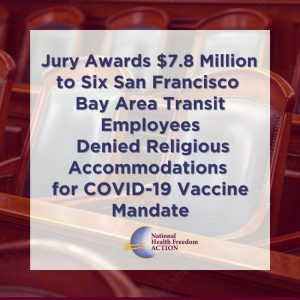In general, laws relating to health belong at the state and local level, both under the Constitution and under the related natural desire for self-rule over this intimate area of our life. In a world of ongoing intrusions into our health freedom, US states must continue to change laws as needed, and citizens must stay engaged at every level of government.
Today in the USA, a typical person may be under the jurisdiction of a town, a county, a state, and the federal government all at the same time. The concept of overlapping, concurrent legal jurisdictions goes back at least to the development of separate courts for the church and the king in Europe, circa 1,000 AD. Since the powers of cities and counties are considered portions of state powers, in the US key constitutional and legal debates center around the relationship between individual states and the federal government.
Another level of jurisdiction is at the international level. The United Nations and numerous other global bodies exercise certain powers as agreed to by various countries. And when the US signs on to international agreements, they can have the force of law, depending on addendums added to those agreements by individual countries that protect the independence and sovereignty of the country (i.e. US sovereignty addendum to International Health Regulations). At the same time, there is not yet a general “one-world government,” despite the aspirations for, and fear of, such a future possibility.
And while continuing economic, social, and cultural integration is no doubt inevitable given technology developments, current political realities, and population growth, whether the world order we end up with is one of freedom and health or one of technocratic totalitarianism is an open question.
Apparently, this technology could “reverse the climate crisis” while creating a new one with added hurricanes and flooding across the globe. It could also lead to unmanageable salt deposits on the land and impact marine life via the massive amount of seawater that were to be used. According to CIEL, “on May 29, 2024, more than 70 groups called on governments to prevent outdoor marine geoengineering experiments from taking place, to avoid the legitimization of this dangerous distraction to real climate action and avoid the slippery slope to deployment.”
This case shows how a city can wield power using permitting, zoning, and other laws. And the decision should inspire the next town in which they try to place this “experimental” Marine Cloud Brightening project.
